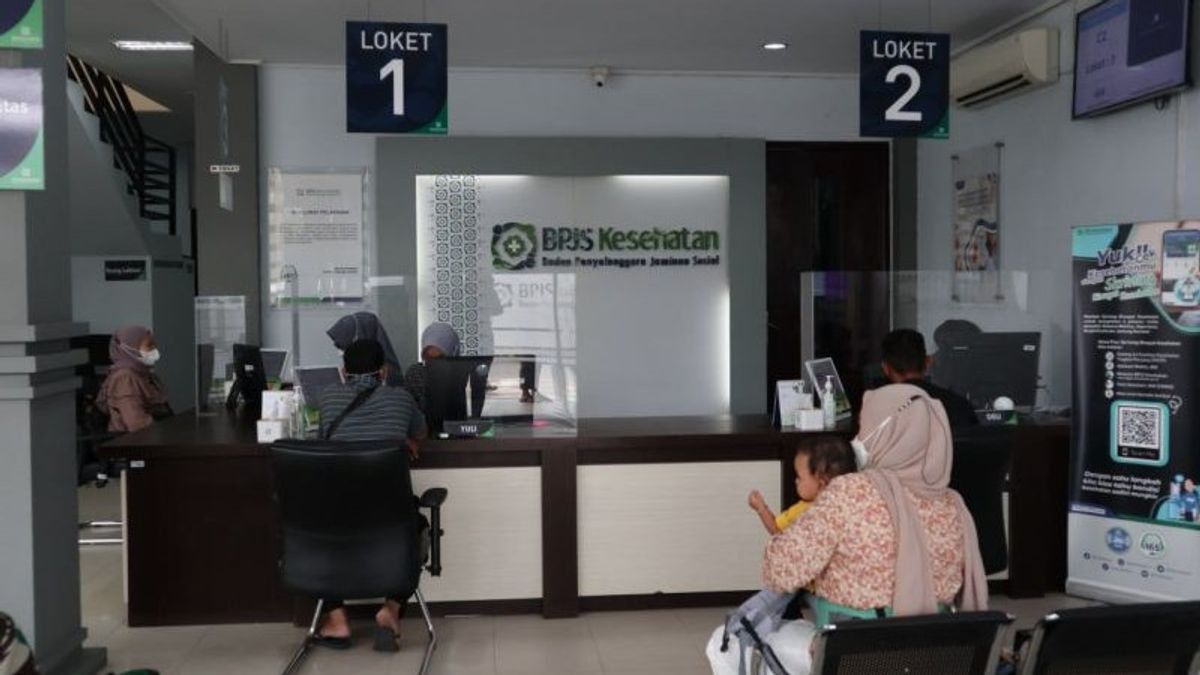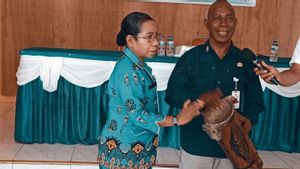JAKARTA - Spokesperson for the Ministry of Health (Kemenkes) Mohammad Syahril denied the issue that the Health Bill (RUU) changed the position of BPJS Kesehatan under the Minister of Health, from being directly responsible to the president.
"Responding to protests by several parties regarding the issue of the existence of BPJS Kesehatan which will be brought by the Minister of Health in the Health Bill, we are the Ministry of Health, as the coordinator of the government's representative in discussing the bill, denying the issue," Syahril said in his statement, Tuesday, March 14.
Syahril explained, in the Chapter XIII of the Health Bill Article 425 it was explained that BPJS remained a public legal entity and was responsible to the President through the Minister of Health.
"So, stay under the president but coordinate with the Minister of Health. So BPJS is not in the Ministry of Health structure," said Syahril.
For information, a number of parties criticized the contents of Article 13 paragraph (2) letter a of the Health Bill which revised the responsibility of BPJS Kesehatan, which was originally directly to the President, to the President through the Ministry of Health.
This protest was expressed by BPJS Watch, the Indonesian Consumer Foundation (YLKI), the labor group, to the President Director of BPJS itself.
Previously, BPJS Watch Coordinator Timboel Siregar agreed, the article regarding BPJS in the Health Bill which is currently being discussed by Commission IX of the DPR RI together with a number of relevant stakeholers have the potential to reduce BPJS' authority, namely the board of directors and Supervisory Board of BPJS.
The National Health Insurance Program (JKN), which is a constitutional mandate, according to Timboel, cannot be implemented by BPJS Kesehatan alone, but needs support from other ministries/agencies.
"The presence of Presidential Instruction Number 1 of 2022 concerning Optimization of the Implementation of the JKN Program which involves 30 ministries/agencies and local governments positioning BPJS directly responsible to the President, so that the implementation of the JKN program has a check and balance system between BPJS and ministries/agencies. If BPJS is under the Minister of Health, the JKN program will be threatened that it will not run well, which will have a direct impact on the community," said Timboel.
Timboel said the provisions of the Health Bill mandated the Minister of Health to intervene in BPJS' work sourced from community mutual cooperation contributions.
"The Ministry of Health's duties, which should be financed by the State Revenue and Expenditure Budget (APBN), can be diverted to financing from public fees," he said.
"Health programs that are financing in the state budget, such as the Healthy Life Community Movement (Germas), could be left to the JKN Program to finance it," he continued.
"If this happens, the JKN program will again have the potential to experience a deficit because the use of public contributions collected at BPJS Health is used for the benefit of the Ministry of Health. If the deficit will have a direct impact on reducing services to the community," he said.
The English, Chinese, Japanese, Arabic, and French versions are automatically generated by the AI. So there may still be inaccuracies in translating, please always see Indonesian as our main language. (system supported by DigitalSiber.id)
Most Popular Tags
#Prabowo Subianto #New Year #Mother's Day #nataru #NatalPopular
22 Desember 2024, 05:34
22 Desember 2024, 00:05
22 Desember 2024, 06:15
22 Desember 2024, 01:06













